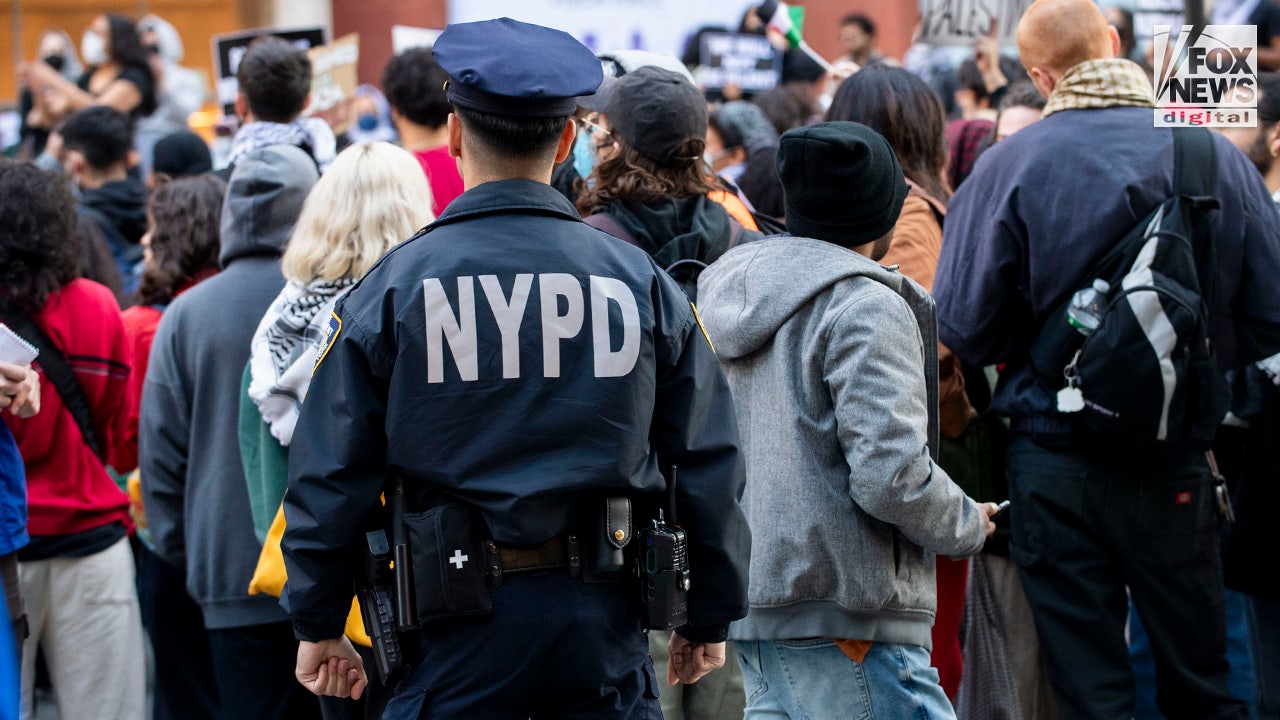Amid the constant drumbeat of sensational news stories — the scandals, the legal rulings, the wild political gambits — it’s sometimes easy to overlook the deeper trends that are shaping American life. For example, are you aware how much the constant threat of violence, principally from MAGA sources, is now warping American politics? If you wonder why so few people in red America seem to stand up directly against the MAGA movement, are you aware of the price they might pay if they did?
Late last month, I listened to a fascinating NPR interview with the journalists Michael Isikoff and Daniel Klaidman regarding their new book, “Find Me the Votes,” about Donald Trump’s efforts to overturn the 2020 election. They report that Georgia prosecutor Fani Willis had trouble finding lawyers willing to help prosecute her case against Trump. Even a former Georgia governor turned her down, saying, “Hypothetically speaking, do you want to have a bodyguard follow you around for the rest of your life?”
He wasn’t exaggerating. Willis received an assassination threat so specific that one evening she had to leave her office incognito while a body double wearing a bulletproof vest courageously pretended to be her and offered a target for any possible incoming fire.
Don’t think for a moment that this is unusual today. Judge Tanya Chutkan, who is overseeing Trump’s federal Jan. 6 trial, has been swatted, as has the special counsel Jack Smith. For those unfamiliar, swatting is a terrifying act of intimidation in which someone calls law enforcement and falsely claims a violent crime is in process at the target’s address. This sends heavily armed police to a person’s home with the expectation of a violent confrontation. A swatting incident claimed the life of a Kansas man in 2017.
The Colorado Supreme Court likewise endured terrible threats after it ruled that Trump was disqualified from the ballot. There is deep concern for the safety of the witnesses and jurors in Trump’s various trials.
Mitt Romney faces so many threats that he spends $5,000 per day on security to protect his family. After Jan. 6, the former Republican congressman Peter Meijer said that at least one colleague voted not to certify the election out of fear for the safety of their family. Threats against members of Congress are pervasive, and there has been a shocking surge since Trump took office. Last year, Capitol Police opened more than 8,000 threat assessments, an eightfold increase since 2016.
Nor is the challenge confined to national politics. In 2021, Reuters published a horrifying and comprehensive report detailing the persistent threats against local election workers. In 2022, it followed up with another report detailing threats against local school boards. In my own Tennessee community, doctors and nurses who advocated wearing masks in schools were targets of screaming, threatening right-wing activists, who told one man, “We know who you are” and “We will find you.”
My own family has experienced terrifying nights and terrifying days over the last several years. We’ve faced death threats, a bomb scare, a clumsy swatting attempt and doxxing by white nationalists. People have shown up at our home. A man even came to my kids’ school. I’ve interacted with the F.B.I., the Tennessee Department of Homeland Security and local law enforcement. While the explicit threats come and go, the sense of menace never quite leaves. We’re always looking over our shoulders.
And no, threats of ideological violence do not come exclusively from the right. We saw too much destruction accompanying the George Floyd protests to believe that. We’ve seen left-wing attacks and threats against Republicans and conservatives. The surge in antisemitic incidents since Oct. 7 is a sobering reminder that hatred lives on the right and the left alike.
But the tsunami of MAGA threats is different. The intimidation is systemic and ubiquitous, an acknowledged tactic in the playbook of the Trump right that flows all the way down from the violent fantasies of Donald Trump himself. It is rare to encounter a public-facing Trump critic who hasn’t faced threats and intimidation.
The threats drive decent men and women from public office. They isolate and frighten dissenters. When my family first began to face threats, the most dispiriting responses came from Christian acquaintances who concluded I was a traitor for turning on a movement whose members had expressed an explicit desire to kill my family.
But I don’t want to be too bleak. So let me end with a point of light. In the summer of 2021, I received a quite direct threat after I’d written a series of pieces opposing bans on teaching critical race theory in public schools. Someone sent my wife an email threatening to shoot me in the face.
My wife and I knew that it was almost certainly a bluff. But we also knew that white nationalists had our home address, both of us were out of town and the only person home that night was my college-age son. So we called the local sheriff, shared the threat, and asked if the department could send someone to check our house.
Minutes later, a young deputy called to tell me all was quiet at our home. When I asked if he would mind checking back frequently, he said he’d stay in front of our house all night. Then he asked, “Why did you get this threat?”
I hesitated before I told him. Our community is so MAGA that I had a pang of concern about his response. “I’m a columnist,” I said, “and we’ve had lots of threats ever since I wrote against Donald Trump.”
The deputy paused for a moment. “I’m a vet,” he said, “and I volunteered to serve because I believe in our Constitution. I believe in free speech.” And then he said words I’ll never forget: “You keep speaking, and I’ll stand guard.”
I didn’t know that deputy’s politics and I didn’t need to. When I heard his words, I thought, that’s it. That’s the way through. Sometimes we are called to speak. Sometimes we are called to stand guard. All the time we can at least comfort those under threat, telling them with words and deeds that they are not alone. If we do that, we can persevere. Otherwise, the fear will be too much for good people to bear.






